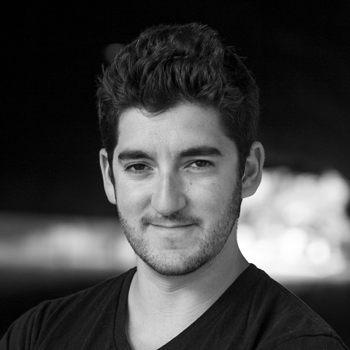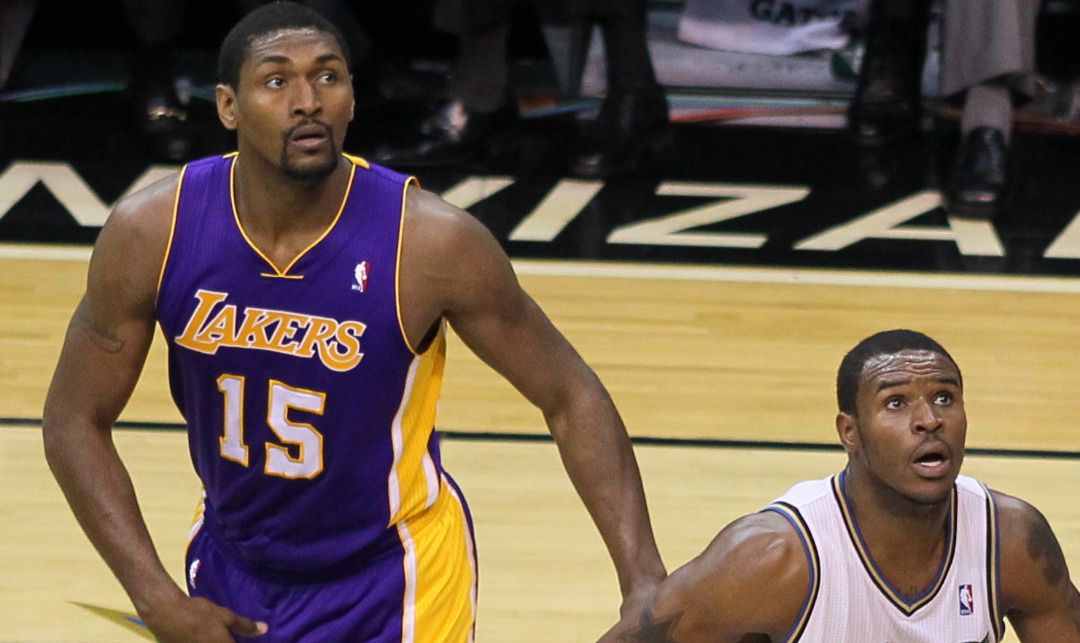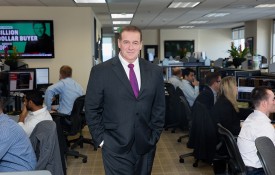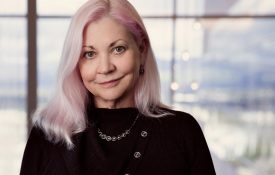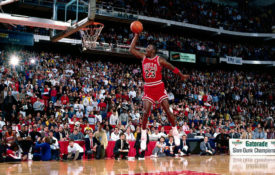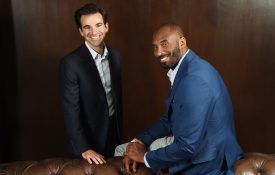Metta Sandiford-Artest is one of the best defenders that has ever played in the NBA. After a career playing for six teams, including a championship-winning period with the Los Angeles Lakers, he’s working as an entrepreneur and taking the lessons he gained from basketball and applying them to business. He sat down with CSQ ally Erik Huberman to discuss his time in the NBA, what he learned about endorsements and how best to market yourself.
How Metta Discovered Basketball
Erik Huberman: Before you became a star basketball player and entrepreneur, did you come out of the womb, get tossed a basketball, and immediately start dunking?
Metta Sandiford-Artest: Obviously, not. When I was eight years old, my dad put me on the court. I just fell in love with it. My first two years were rough. I was trying, but about the age of 11, I was getting better. I liked it, I had a great time playing it, and I liked it, so I just stuck with it.
Huberman: At what point did you start to realize that this could be something you could do professionally?
Sandiford-Artest: When I was about 15-16, I was like, “Oh wow, I might be able to do this.” I was a junior year in high school.
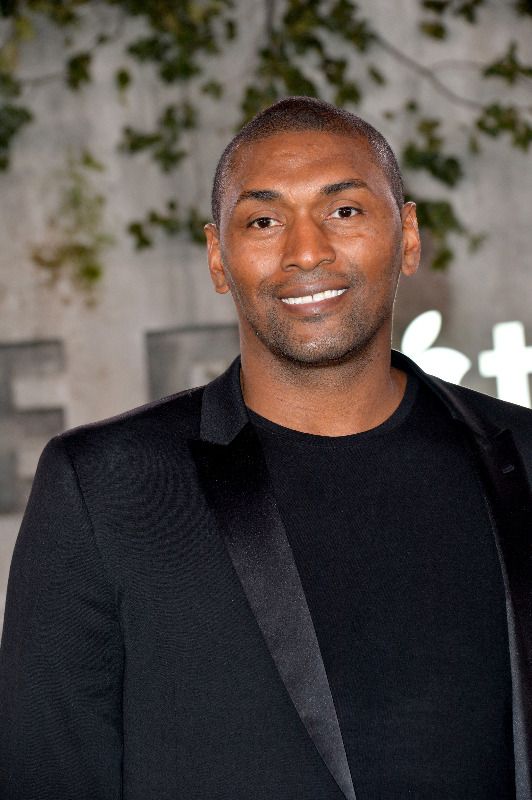
Metta Sandiford-Artest in 2019. Photo courtesy Paul Smith/Featureflash.
The Game of College Ball
Huberman: Did you end up going to college for basketball, or did you go straight into the NBA?
Sandiford-Artest: I went to college for two years at Saint John’s. I wanted to do good in school still so I thought I was going to be an architecture major. I wanted to build community centers. I wanted to do something else competitive, so then I did art. I was a sophomore, 19, when the Chicago Bulls drafted me. It was great because they were my favorite team growing up. The Knicks were my hometown team.
Huberman: One of the main things you were known for is being such a fierce defender. How is that experience? Was it, “Oh wow, this is basketball” or did you go in ready for how you would feel when you first stepped on the court in the NBA?
Sandiford-Artest: I felt like I was going to compete. But I wasn’t ready. I wasn’t good enough. I wanted to be good. I played with Tim Floyd, my first coach. His defensive practices were pretty tough, but it was fun, and I learned a lot of my defense from him. He paid attention, and he had many good concepts on how to guard people. You know how to guard your man.
How to Market Yourself
Huberman: You’re an entrepreneur now. I’m curious when you first joined the NBA, did you start getting endorsement deals? When did you start getting interested in the business side of things?
Sandiford-Artest: When I was 19, I wanted to do my shoe, and I remember my first agent Mark Balderson. He said, you know it’s going to be about $90,000 grand to mold. I want to figure out how to do a shoe. I was always inspired to do business.
I wore Panda’s Friend shoes later, as well as other shoe lines. When I promote shoes, they just pay to shoot and do some marketing, but I don’t typically like those deals anymore. I’d instead create my stream and build my marketing campaigns. I felt strongly enough that if I had my shoe, I would get good, and then we’re going to sell that shoe.
The Arc of Sandiford-Artest’s Career
Huberman: I happened to be there when you hit that game-winning shot from the corner in Game 7 of the 2010 NBA championships Lakers vs. Celtics. That was awesome! I’m always curious: when you’re building up with a team and then every couple years you’re moving around, how is that experience?
A startup is something where you have to go all the way in, and you have to be focused. Things don’t go your way most of the time, and you will make mistakes eventually.
Sandiford-Artest: It isn’t straightforward. It depends on why a team traded for you, right? Many teams make trades because they feel you can help them win versus they want you around for a long time. I wish I would have stayed in Indiana because I want to show I have some staying power and stability when a player is.
If a team is paying you, l don’t want to be talking in the media like I want to be traded. I wouldn’t say I like it here. I feel like that was very unprofessional.
Huberman: I remember when LeBron did the whole thing with Miami and left Cleveland, where he turned into an entire spectacle. It’s like when you’re young and excited, and on top of the world, it’s hard to recognize that and to be humble. I think as you get older many things humble you, and you realize like it’s good to treat everyone around you
What’s Next for Sandiford-Artest?
Huberman: Where are you at now? Tell me about what’s going on in your world now? Where do you see this going? I know you’ve built some digital brands, but give me the overview.
Sandiford-Artest: For the most part, I think I love building, let’s say, an app. I look at it as a company more than an app. So, I try to understand how to add tangibility to it as I build a business, partnerships, and sponsorships behind me. A startup is something where you have to go all the way in, and you have to be focused. Things don’t go your way most of the time, and you will make mistakes eventually.
Huberman: I get you. It’s a fun challenge. If you’re used to grinding, it’s one of those things that even if most things fail when those few things succeed, it’s so rewarding.
His Advice to Dreamers
Huberman: What advice would you give to someone that admires you that’s looking to either be a professional basketball player or pursue their dreams in general. What do you think is the one thing they should do? What’s the one piece of advice you’d give to that young person or that older person, someone that’s making a career change?
Sandiford-Artest: You want to pursue something, have an objective, and try your best. If you’re not accomplishing what you want on a day-to-day basis, ask yourself questions: why have I not achieved this, like what’s happening? Figure out how you can build a network to come up with solutions.
I was never huge on that. But, recently, I have been around people who are doing the same things that you want to do. I found myself learning so much from people like, oh, you’re so smart, but that’s not true. I mess around different people, you know. I’ve been trying to surround myself with people who I just genuinely like to be around.
Watch the full interview here.
Erik Huberman is the Founder & CEO of Hawke Media, a full-service Outsourced CMO based in Santa Monica, CA that launched in 2014 and has been valued at $60 million.
Featured image by Keith Allison from Owings Mills, USA, CC BY-SA 2.0, via Wikimedia Commons






































